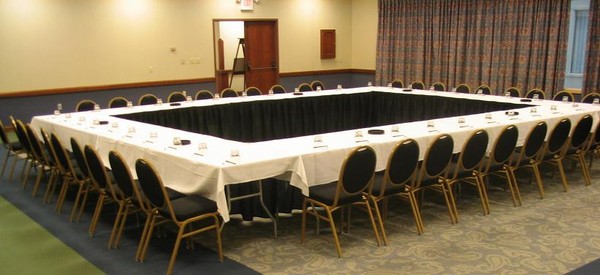

Oh no … not another meeting
How many times have your work colleagues gone into auto-pilot and scheduled a meeting because they think it the next thing to be done.
Most of us pack our diaries with meetings as if it was a popularity contest or in fear that the ‘white space’ would be pinched by a colleague desperate to meet.
Who owns your time? and Who manages your diary? Are common questions I ask – It predominantly turns out that it’s not them – but everybody else.
Meetings can be the same, who owns the meeting? who manages the meeting – again- it turns out that it’s not them.
The number of meetings is not the only issue we face, but the content of the meeting can lead to bordem. Without clear roles and focus meetings can (and have) turned
into chatting shops – with the same agenda items being discussed time and time again.
A great piece I found written by Dan Burrier (Ex-Chief Innovation Officer at Ogilvy & Mather, CEO at COMMON):
…In our work at Ogilvy, I often remind teams that “we’re not being paid millions for a meeting at 10am in room 8A.” Rather, we are entrusted to build brands, develop market strategies, create sales, and spark true market movement. It is our job to carve out new space for our clients, to set new corporate and consumer behaviors, to create a distinction between need and want, to forge trusted relationships with consumers, markets, countries and geographies. It’s a common mistake that staff feel they come to work to attend meetings, as long as they are attending meetings they doing something. This line of thinking is a result of management failing to undertake quick briefing before meetings, the aim is to establish ‘What is it we want to achieve?’ and ‘What is it we will accept as a minimum?’…
A frequent occurrence is what I call ‘Can I bring my friends?’ or ‘Can I invite the boss, to illustrate what a great job I do’ – both are a waste of their and your time.
Meetings can be simply viewed in two ways – those that ‘keep the business running’ such as team meetings, update meetings and progress meetings and those meeting that ‘move the business forward’ and ‘keeps it competitive’ such as new projects, new initiatives and new acquisitions meetings. It is important to initially establish what toe of meeting you are attending, so that you can be in the correct gear.
Her are some tips you may find useful:
- It’s your diary – don’t let anyone take ownership away from you.
- Establish whether the meetings is related to ‘keep the business running’ or ‘moving the business forward’ and ‘keeps it competitive’
- Do you really need to attend? if no, delegate, although keep visibility discussion and decisions.
- Agree before the meeting ‘What is it we want to achieve?’ and ‘What is it we will accept as a minimum?’
- Only invite the right people to the meeting?
Above all always leave time after all meetings to reflect, plan actions that arose from the meeting and to give you time to get ready for the next meeting.
Great meeting are memorable – on walking out of such meetings, you hear yourself say ‘wow, that was a good meeting …’
The question to ask yourself is – what made it a good meeting?
On no – just got an invite for another meeting …
